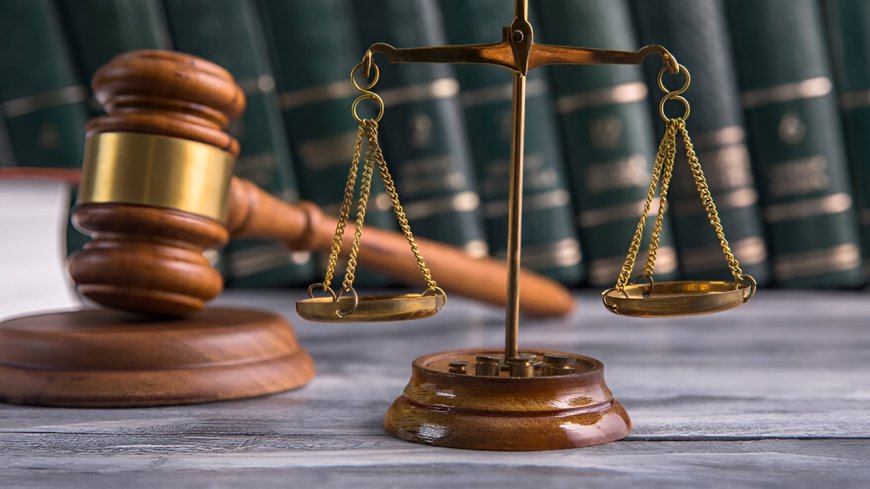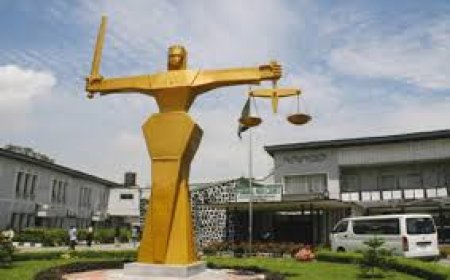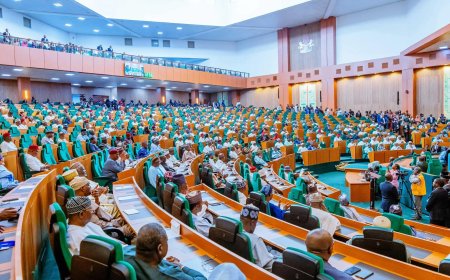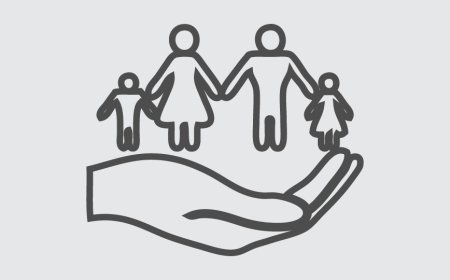Judicial Reform, Rule of Law and Human Rights
The rule of law is a fundamental principle of good governance, and it plays a crucial role in ensuring a just and equitable society Over the years, several challenges have impeded the rule of law in Nigeria, including corruption, a weak judicial system, inadequate and unequal access to justice, human rights violations, complex and inconsistent legal frameworks, ethnic and religious tensions and security challenges The 10th House of Representatives is committed to ensuring that all individuals, institutions, and entities, including the government, are accountable to and governed by laws that are applied consistently and fairly The House undertakes to do the following:
Click here to track progress

- Judicial Reforms: Reforming and strengthening the judiciary in Nigeria is crucial for upholding the rule of law, ensuring accountability, promoting justice, and fostering economic development Accordingly, the 10th House is committed the following:
- Pass a law to regulate the process of selection and appointment of judges outlining detailed processes and requirements as well as greater transparency and public involvement at all stages
- Amend the Constitution and relevant statutes to expand membership of the appointing institutions
- Ensure compliance to constitutional provisions and guidelines through oversight
- Consult on the merit of establishing specialised courts to handle specific types of cases, which could expedite case resolution and reduce backlogs
- Provide adequate resources for speedy dispensation of justice
- Improve transparency and public accountability through oversight by relevant committees
- Improve the remuneration of judges and judicial officers to minimise corruption
- Support the introduction of a merit-based system in appointment and promotion of judges
- Expand and strengthen legislative scrutiny and create legal framework to regulate the process
- Promote measures that ensure inclusion and respect for diversity in appointment of judges
- Advocate the full implementation of judicial financial independence as guaranteed by the Fourth Constitutional Alteration, and ultimately improve the process and ensure fairness and transparency
- Review and update critical obsolete legislations and collaborate with the Law Reform Commission to update the Laws of the Federation.
- Simplify and harmonise laws, regulations, and legal processes to enhance clarity and consistency
2. Human Rights Protection: promoting human rights protection is an essential aspect of democracy, which requires a multifaceted approach, involving various stakeholders such as the government, civil society organizations,
international bodies, and the general populace. Some of the commitments of the 10th House in this regard are:
- Initiate legal reforms to address systemic human right issues (e.g., improving the criminal justice system, prison conditions, and access to justice)
- Pass legislation that protects and promote human rights
- Domesticate relevant international human rights treaties
- Strengthen the Human Rights Committee of the House to conduct oversight of government agencies and promote human rights education and human rights ombuds in law enforcement agencies (e.g., Police Act, 2022, the Armed Forces Act).
- Strengthen the National Human Rights Commission to make it more effective.
- Adopt legislative measures to support the Executive in implementing security sector reforms to ensure the protection of human rights.

































